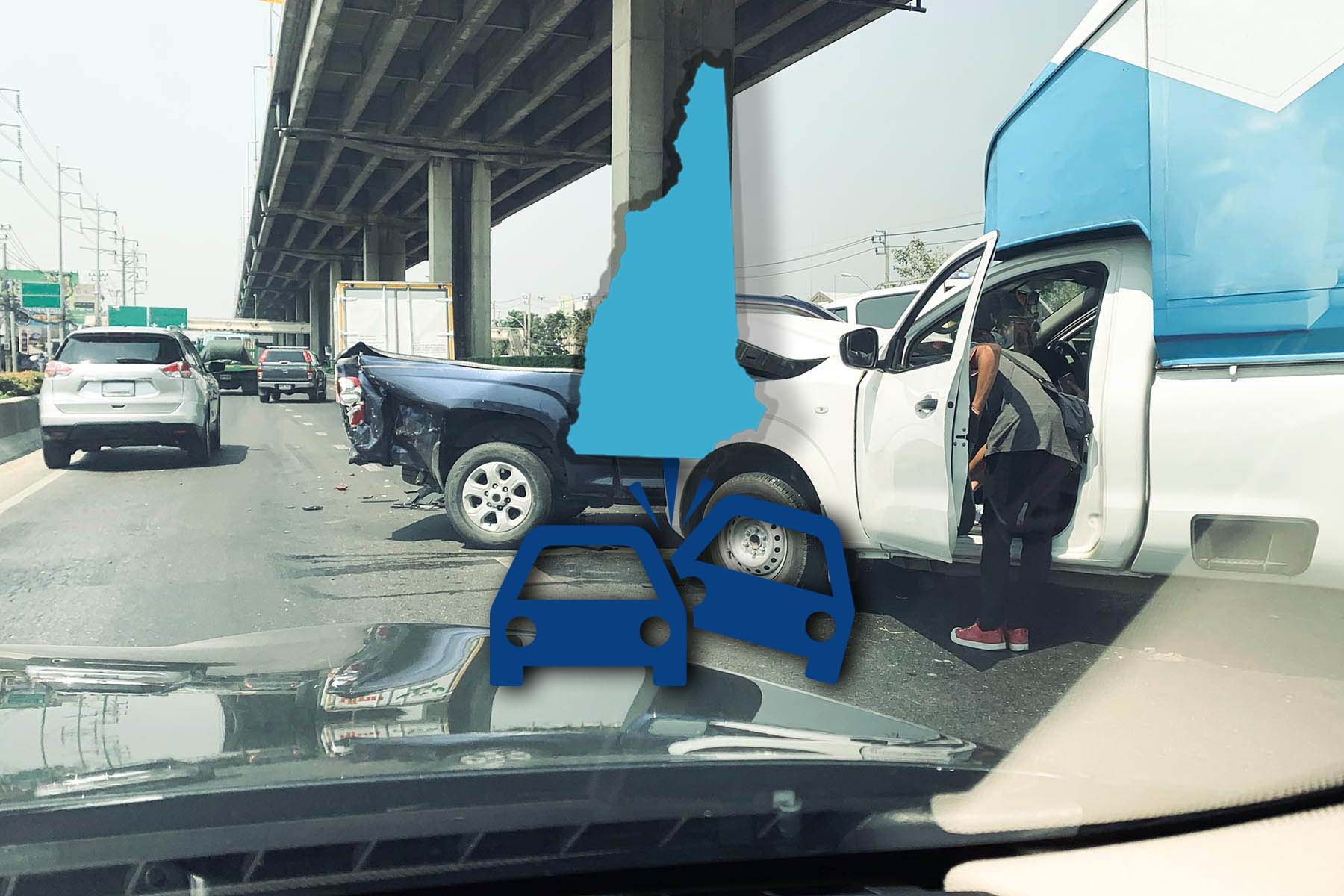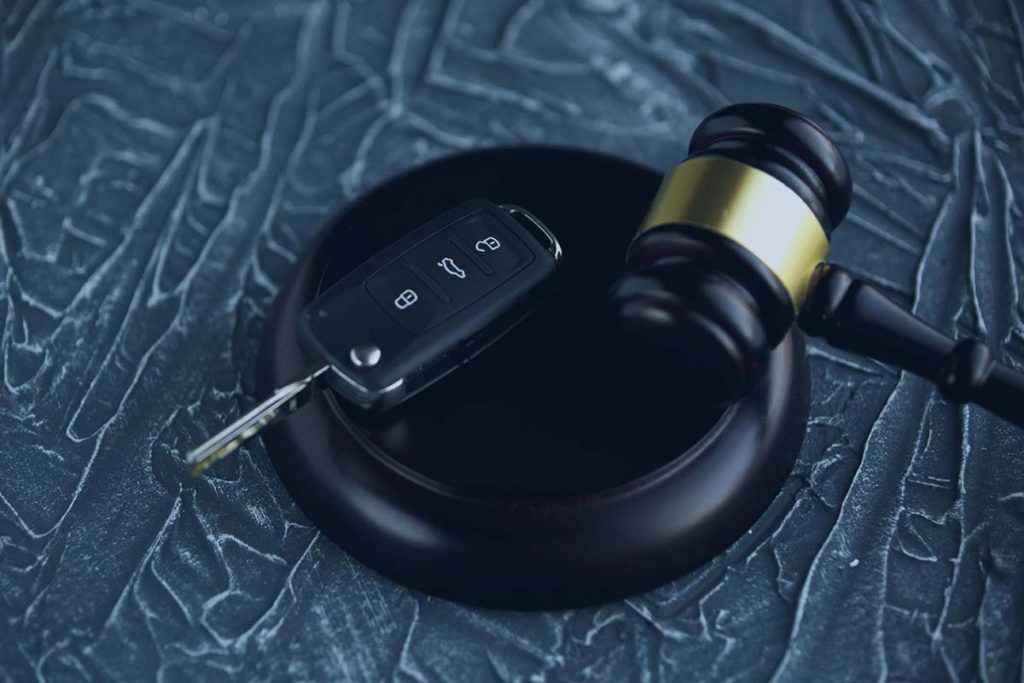
New Hampshire Hit and Run Laws: What happens if you leave the scene of an accident in New Hampshire?
- New Hampshire Hit and Run Laws: What happens if you leave the scene of an accident in New Hampshire?
- What happens if you leave the scene of an accident in New Hampshire?
- Is leaving the scene of an accident a misdemeanor in New Hampshire?
- Is leaving the scene of an accident a felony in New Hampshire?
- What is the penalty for leaving the scene of an accident in New Hampshire?
- How do victims of hit and run recover compensation in New Hampshire?
- What is the statute of limitations on personal injury in New Hampshire?
- Settle or sue?
- How is fault determined in New Hampshire?
- Leaving the scene of an accident in New Hampshire: Possible defenses
Under New Hampshire code section 264:25, leaving the scene of an accident involving property damage is a misdemeanor. If anyone dies or suffers a serious injury, a hit-and-run escalates into a felony.
Quick take: leaving the scene of an accident in New Hampshire
- If the accident results in death or injury, filing a false police report is a felony.
- Never admit fault or comment about your health at the scene of an accident (seek medical advice).
- Leaving the scene of an accident resulting in injury or death is a felony.
- Felony hit and run happens when you leave the scene of an accident involving property damage.
- New Hampshire is an “at fault state,” (the at fault party pays).
References
What happens if you leave the scene of an accident in New Hampshire?

New Hampshire hit and run laws section 264:25 says that if you know or should have known of your involvement in a traffic collision resulting in death, injury, or property damage – you must immediately stop your vehicle and fulfill the following requirements.
- Give your name, address, and vehicle registration number to the struck property owner or victim.
- Exchange policy information with the other driver or property owner.
- If the struck person is unable to receive the information, you must give it to a uniformed police officer present at the scene.
- If there is no peace officer present at the scene, you must report the accident to the nearest police station.
- You must call the police if the accident results in injury, death, or property damage surpassing $1000.
Note. Under the statute, voluntary intoxication is not a defense. Also, section II of the statute reads, quote:
“No report required under paragraph I, nor any certificate issued by the director under the authority provided by this paragraph, may be used as evidence in any criminal trial arising out of a reported accident where the reporting party is a defendant.”
Also, section three states that the statute does not prevent prosecutors from bringing other charges under RSA 264:28 “False reporting of accidents” and RSA 264:29 “conduct and reporting after an accident, penalty.”
What to remember:
- It is not mandatory to have insurance in New Hampshire, but you must prove that you have the resources needed to cover the cost of a collision.
- If you do not have insurance, you will pay the costs of repairs and medical bills out of pocket.
- Victims and struck property owners may take civil action.
- Driving without proof of financial responsibility will earn you 4 demerit points on your license.
- Violating section 264:25 will earn you six demerit points.
Is leaving the scene of an accident a misdemeanor in New Hampshire?

If the accident does not result in death or injury, leaving the scene is a misdemeanor. What if you hit an unattended vehicle?
If you leave the scene without making an effort to find the owner of the struck vehicle or property, or if you fail to report the accident to law enforcement, you are guilty of a misdemeanor. What if you cannot find the vehicle owner?
You may attach a note on a conspicuous section of the struck vehicle containing your name, address, and vehicle registration number. That raises the question:
What is a reportable accident in New Hampshire?
Under state law, if an accident results in death, injury, or property damage, you must report the accident to the police. Remember section 264:25 reads in part, quote:
“Any person driving a vehicle which is in any manner involved in an accident or any person who owns a vehicle which was illegally parked when it was involved in an accident shall within 15 days after such accident report in writing to the division the facts required hereunder together with a statement of the circumstances if any person is injured or killed, or if property damage is more than $1,000 unless the accident is investigated by a police officer, in which case a report filed by such officer shall satisfy the requirements of this section; provided, however, that any person not otherwise required by this paragraph to file a report, who owns a vehicle which was involved in an accident, may file a report as provided by this paragraph.”
Remember, you have 15 days to file a report, and if the police did not investigate the scene, you must file an operator’s report. Download the file here.
What if you file a false report?
According to section 264:28,” false reporting of accidents,” filing a false report in New Hampshire is a misdemeanor.
Note: If the accident results in death or injury and you fail to report the accident within 15 days, you are guilty of a class B felony.
Is leaving the scene of an accident a felony in New Hampshire?

Failure to report an accident that results in death or injury in New Hampshire is a felony. On top of that, leaving the scene of an accident involving death or injury is a felony. What that means is a single set of facts may lead to multiple felony convictions.
Vehicular homicide
Under section 630:3, you are guilty of vehicular homicide if
(1) you cause the death of another through a negligent act.
(2) you cause the death of another while under the influence of alcohol or a prohibited/controlled substance.
In the state, negligent homicide is a class B felony. A DUI resulting in death is a class A felony. Upon conviction, the court will revoke the convict’s driver’s license for up to seven years. Within those seven years, you will be ineligible for a license. Meaning you cannot petition for one.
If the driver was under the influence of alcohol at the time of the accident, the state shall require the driver to install an ignition interlock device for up to five years.
What is the penalty for leaving the scene of an accident in New Hampshire?
- Hit and run involving property damage/hitting unattended vehicle: depending on the facts presented, could be a class A misdemeanor, punishable by up to one year in jail and a maximum fine of $2000 or class B misdemeanor, punishable by a maximum fine of $1200 (no jail time).
- Leaving the scene of an accident involving death or property damage: class B felony, punishable by up to 7 years in prison and a maximum fine of $2000.
- DUI hit and run/negligent homicide: class B felony, punishable by up to 7 years in prison and a $2000 fine.
- Filing a false police report: class B felony.
Note: upon conviction, the state will suspend or revoke the accused’s driving privileges.
How do victims of hit and run recover compensation in New Hampshire?
If you are the victim of a hit and run in New Hampshire, the first thing to do is gather evidence at the scene. Then, law enforcement officers may use the evidence collected to hunt down the fleeing driver. What you need to collect is the vehicle make and colour, a description of the individual driving the vehicle, the vehicle’s plates, witness testimonies, and dashcam footage – if possible.
You must also immediately contact the police and inform them of the direction the vehicle that struck you is travelling in.
What is the statute of limitations on personal injury in New Hampshire?
Note that you have three years starting from the date of the accident to file a civil lawsuit. Also, if you have PIP (Personal Injury Protection) coverage, you should file a claim with your insurer to recover medical expenses.
Settle or sue?

The facts of the case, your resources, and your attorney -are best suited to advise you on which option to take. If you choose to settle, you should work with a claim’s attorney to help you negotiate. If you do not have the financial resources to file a claim, you may find a lawyer that offers pro-bono services.
How is fault determined in New Hampshire?
New Hampshire is an “at fault” state, meaning if you are responsible for an accident, you are liable to pay damages to the injured person/s. Because of that, it is in your best legal interest to never admit fault at the scene of an accident or say anything that the other party or insurers may interpret as an admission of guilt. For example, “I’m sorry,” or it was entirely my fault.” Instead, you should give a truthful account of the events or let your lawyer speak on your behalf.
New Hampshire has a “comparative fault” rule that allows claimants to recover compensation only if their percentage of responsibility for the accident is not higher than the other party’s.
Tip: if an accident or hit and run results in death, injury, or expensive property damage, you should contact your lawyer before you file a report or contact your insurer.
Leaving the scene of an accident in New Hampshire: Possible defenses
The facts of the case shape a suitable defense. Therefore, if you leave the scene of an accident, you should have a good reason, mainly if it results in death or injury. In your defense, your lawyer may argue that you feared that staying at the scene would result in more harm, or you were unaware of your involvement in a traffic collision. It may also be a case of mistaken identity, or the victim refused to take your information/claimed to have suffered no injuries.
That is why it is vital for accident victims to never comment about their physical condition before consulting with a medical professional. Remember, some symptoms may take days or months to show, so seek medical attention even if you feel okay.
Other New Hampshire Laws